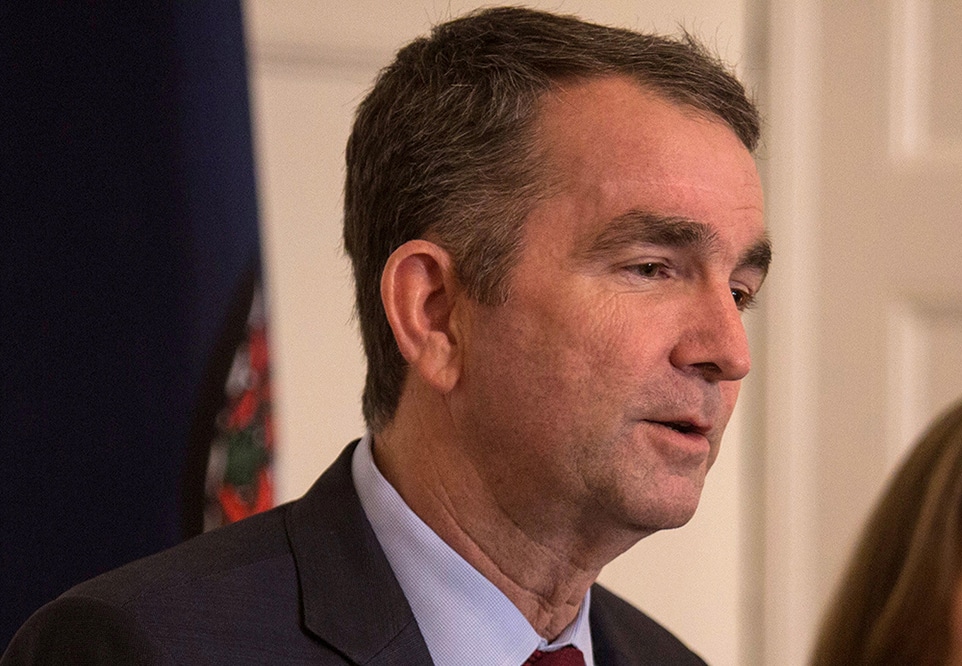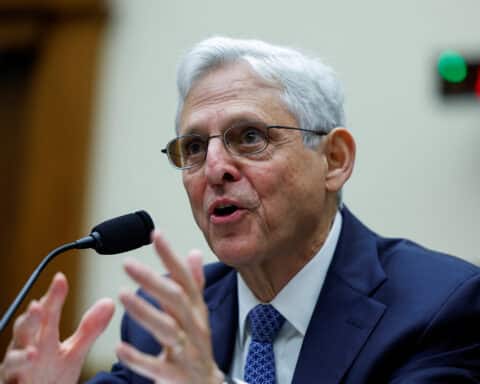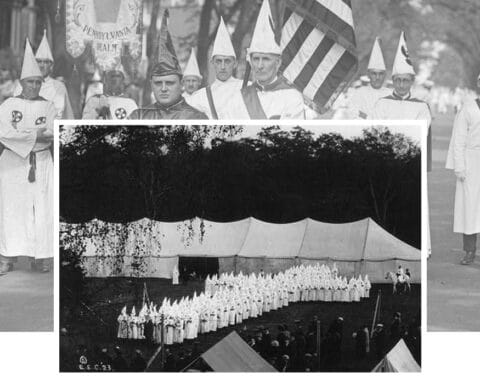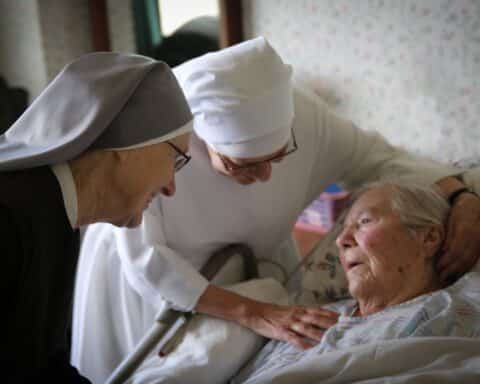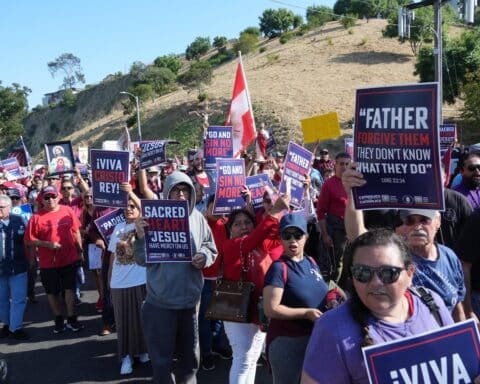Why is it that Catholicism seems to be such an accepted target of religious intolerance?
Virginia Gov. Ralph Northam (you might remember him as the one who nearly lost his job because of the outrage that followed the rediscovery of an image that purportedly showed him wearing blackface) recently appointed a woman to a state council on women’s issues who has a history of tweeting out highly offensive remarks about Catholics.
Among the least derogatory of the remarks posted by Gail Gordon Donegan were, “Saw a bumper sticker: ‘You can’t be both Catholic & Pro-Choice.’ Add: You can be a pedophile though!” and “Go tell a Catholic they have dirt on their forehead,” referring to Ash Wednesday. Other tweets were too grotesque to be reprinted here, but a Google search will, unfortunately, bring them right up.
While Donegan’s comments were met with umbrage by Virginia’s Catholic dioceses, they were shrugged off by Northam’s own communications team. The governor, assured spokeswoman Alena Yarmosky, “certainly does not condone this language.” And that was that. No other defense was given, and no action was taken to rescind Donegan’s appointment. Derogatory remarks made about Catholicism seem to be of little concern.
After all, it’s easy to vilify the Church these days — almost, perhaps, in vogue, especially after the past 15 months. As the clergy abuse scandal has shown, the Church is, without a doubt, an institution with flawed members and flawed leaders. And the past year, not to mention two decades, have laid bare the ugliness that can be born from sin that can take root in the hearts of even those who claim to be men of God. There is much for which those affiliated with the Church must atone.
But while the Church is facing challenges, these challenges do not justify the spewing of hate speech by a public figure toward a religious institution. Were the target anyone or anything other than the Catholic Church, Donegan would by now be, as she should be, a “former appointee.” Catholicism, though, has become everyone’s favorite whipping boy — the faith somehow undeserving of tolerance.
Billy Atwell, communications director for the Diocese of Arlington, rightly pointed out the injustice.
“Ms. Gordon Donegan has a record of ridiculing Catholic beliefs and practices and trafficking in stereotypes that would disqualify her from this role had they targeted any other category of persons,” he said in a statement. “Her statements are offensive to human dignity and fail to reflect the depth of character one would expect of a leader in our Commonwealth.”
Bill Donohue of The Catholic League expressed similar sentiments in a news release, saying:
“This is the kind of thing one would expect from a Klansman, not a responsible advocate for women’s issues. There is no place for this kind of hate speech in the halls of government.”
Perhaps such language from those in public office is to be expected, given the turn our national discourse has taken in recent years. Civility, dialogue, respect amid differences — all of these have become ideals of the past rather than guiding principles for the future. The pervasiveness of social media only compounds the problem, offering a platform where hateful words can be instantly lauded and shared with little to no repercussions.
If we are to reclaim civility, we have to both lead by example and hold offenders accountable. Despite the flaws of its human membership, the Catholic Church, founded by Jesus Christ and centered around his Gospel teaching, remains deserving of respect, even by those who might think otherwise.
OSV Editorial Board: Gretchen R. Crowe, Scott P. Richert, Scott Warden, York Young

